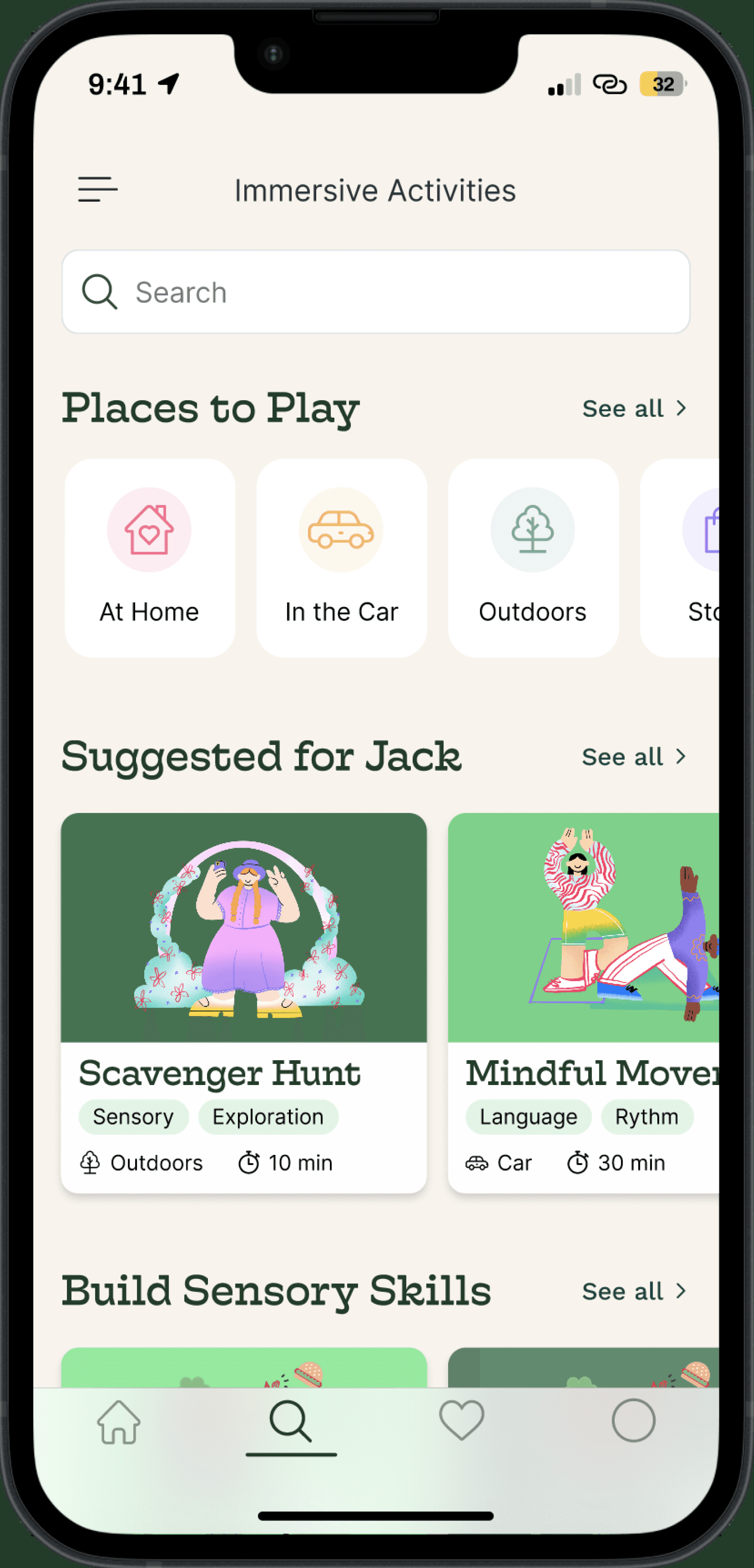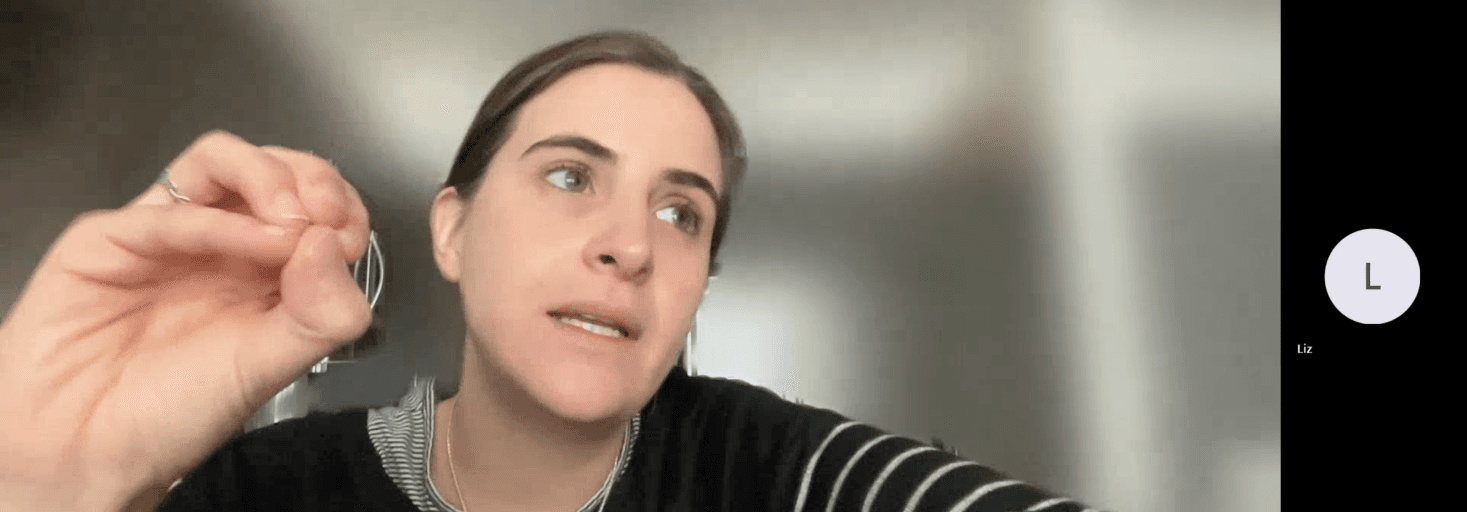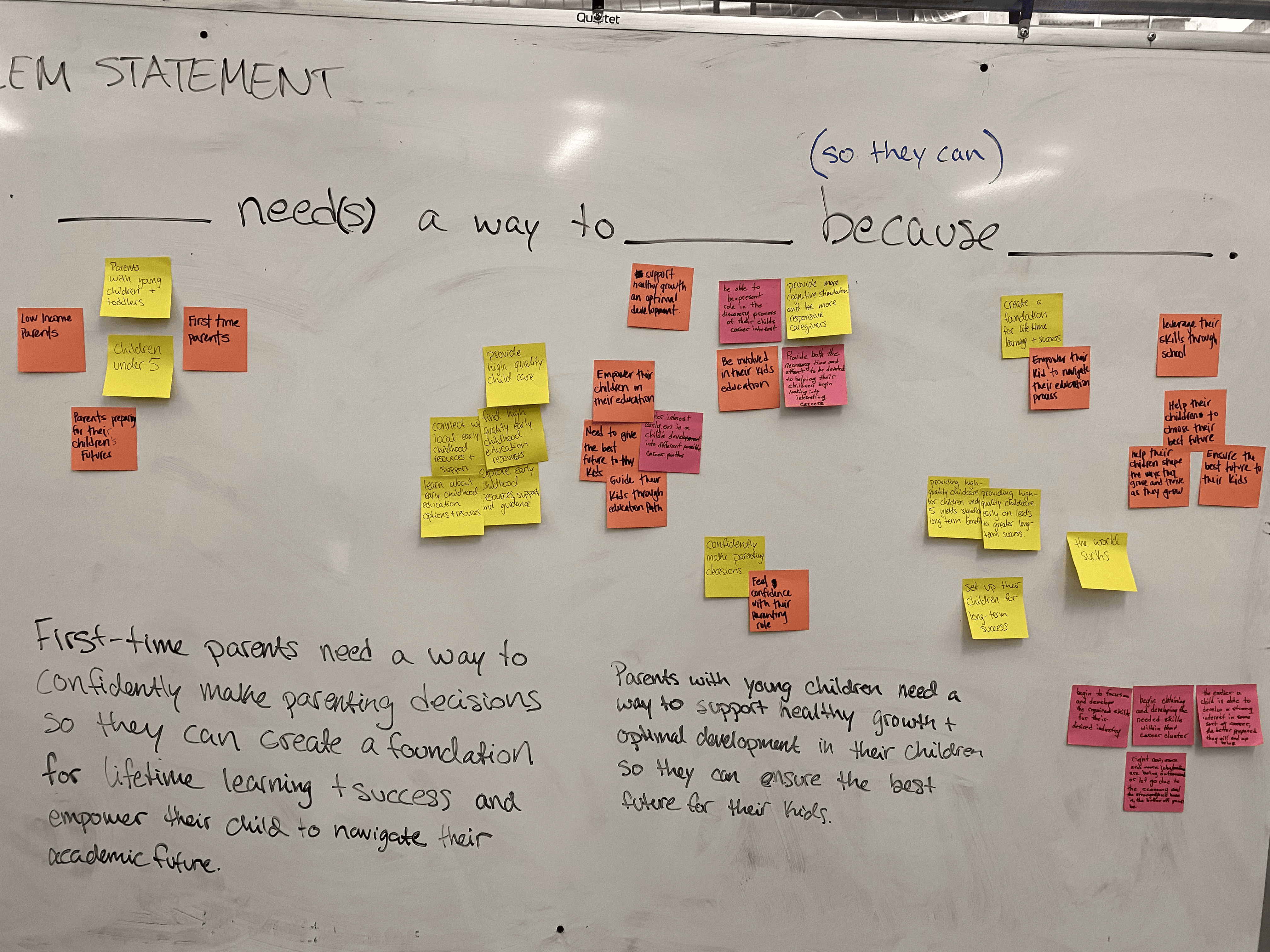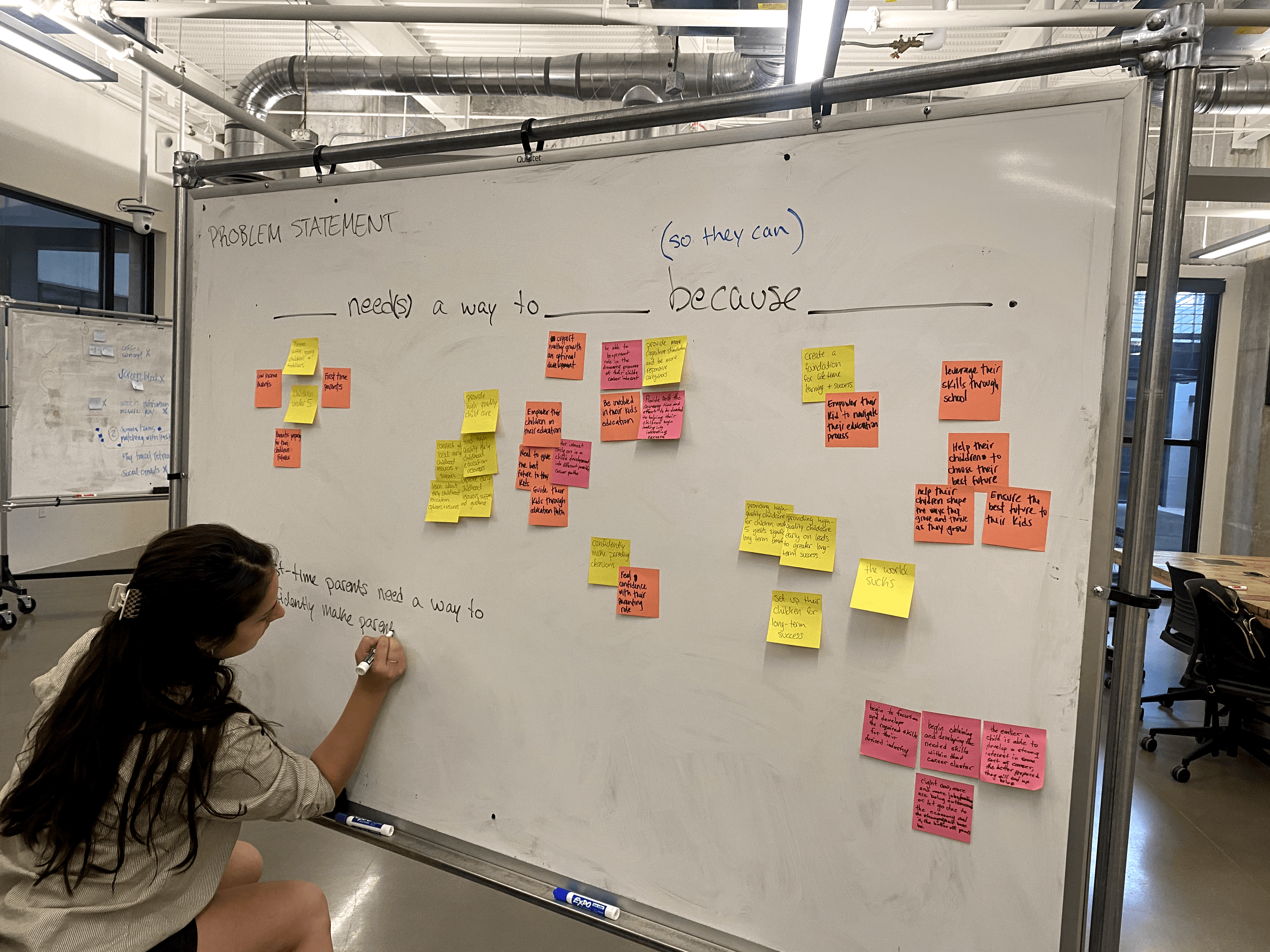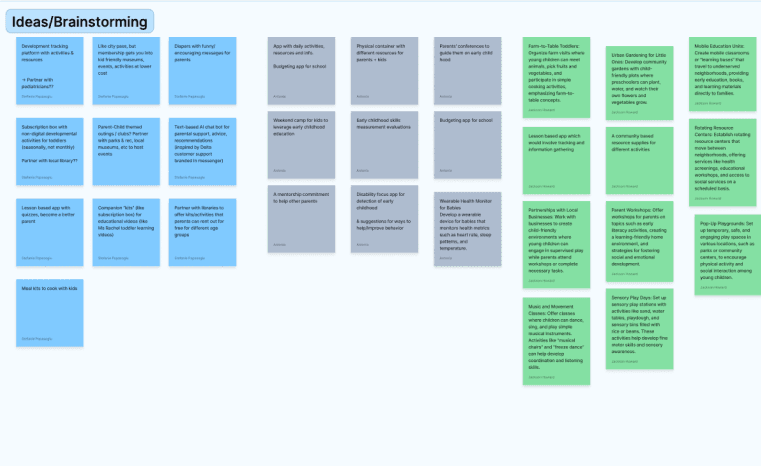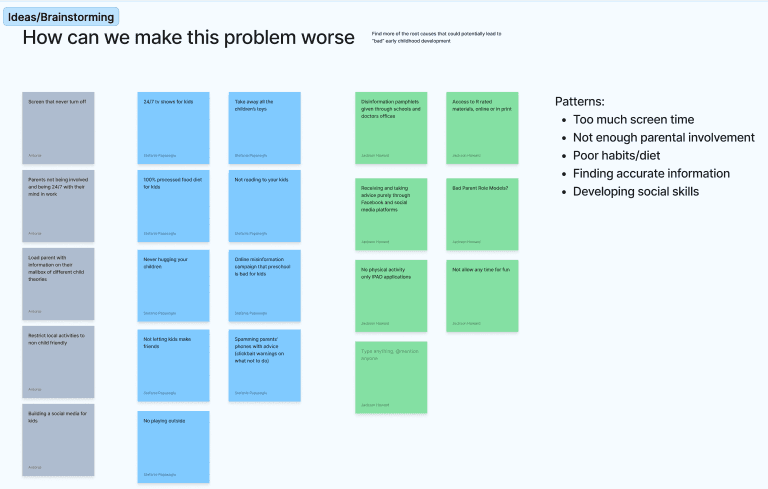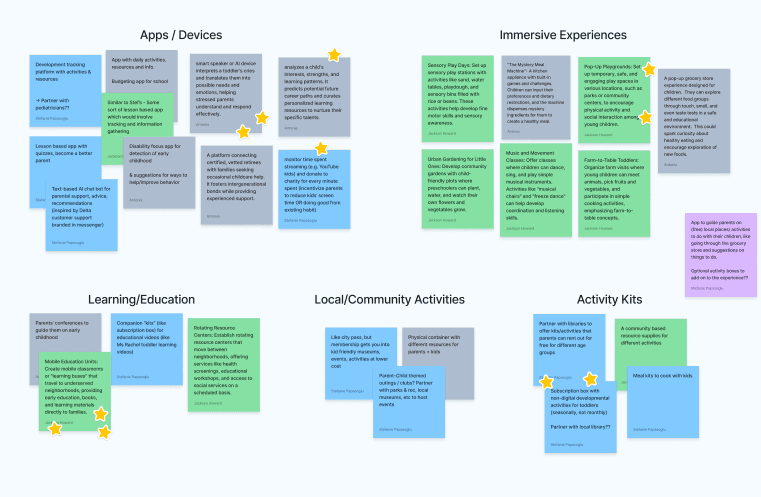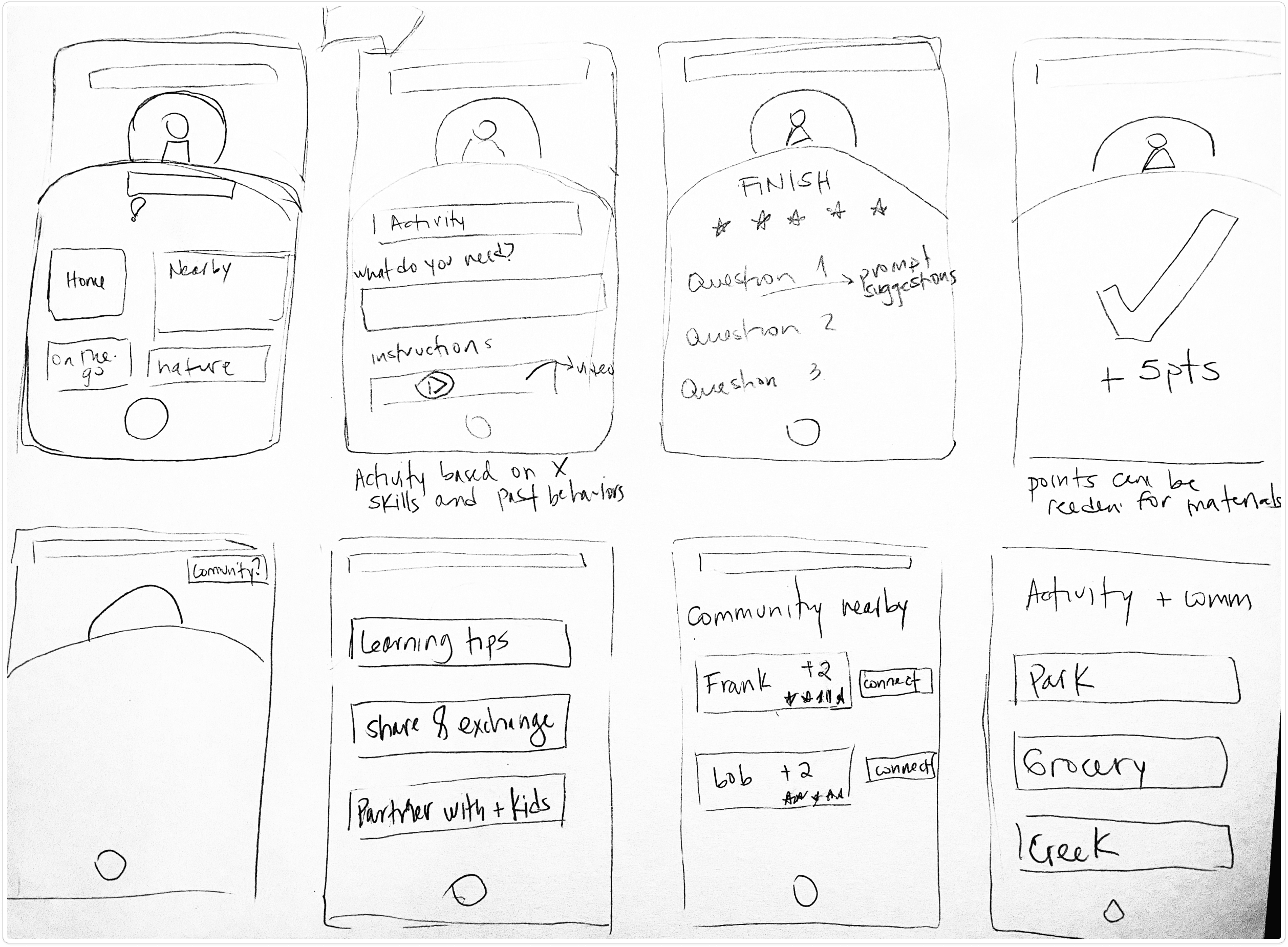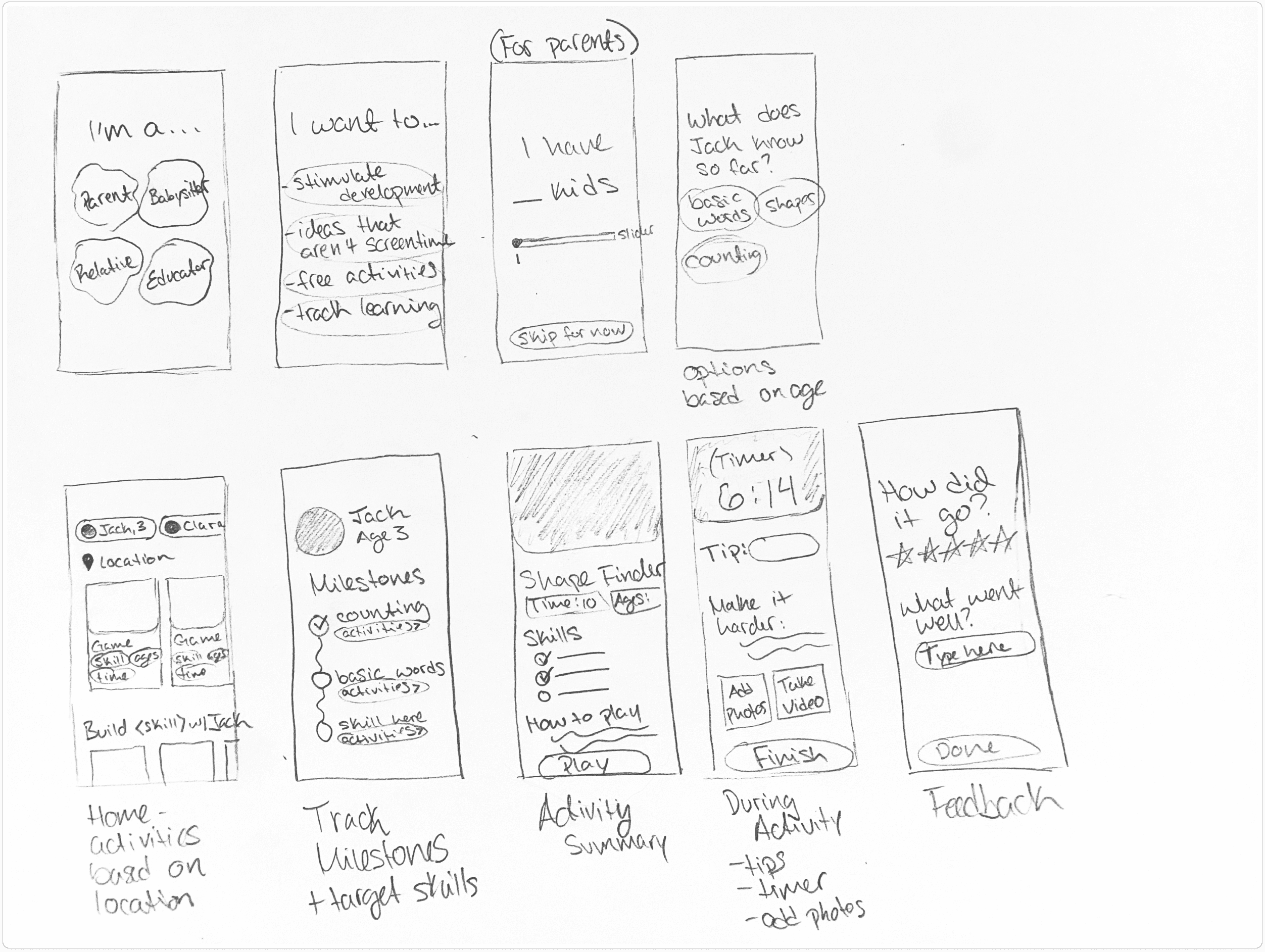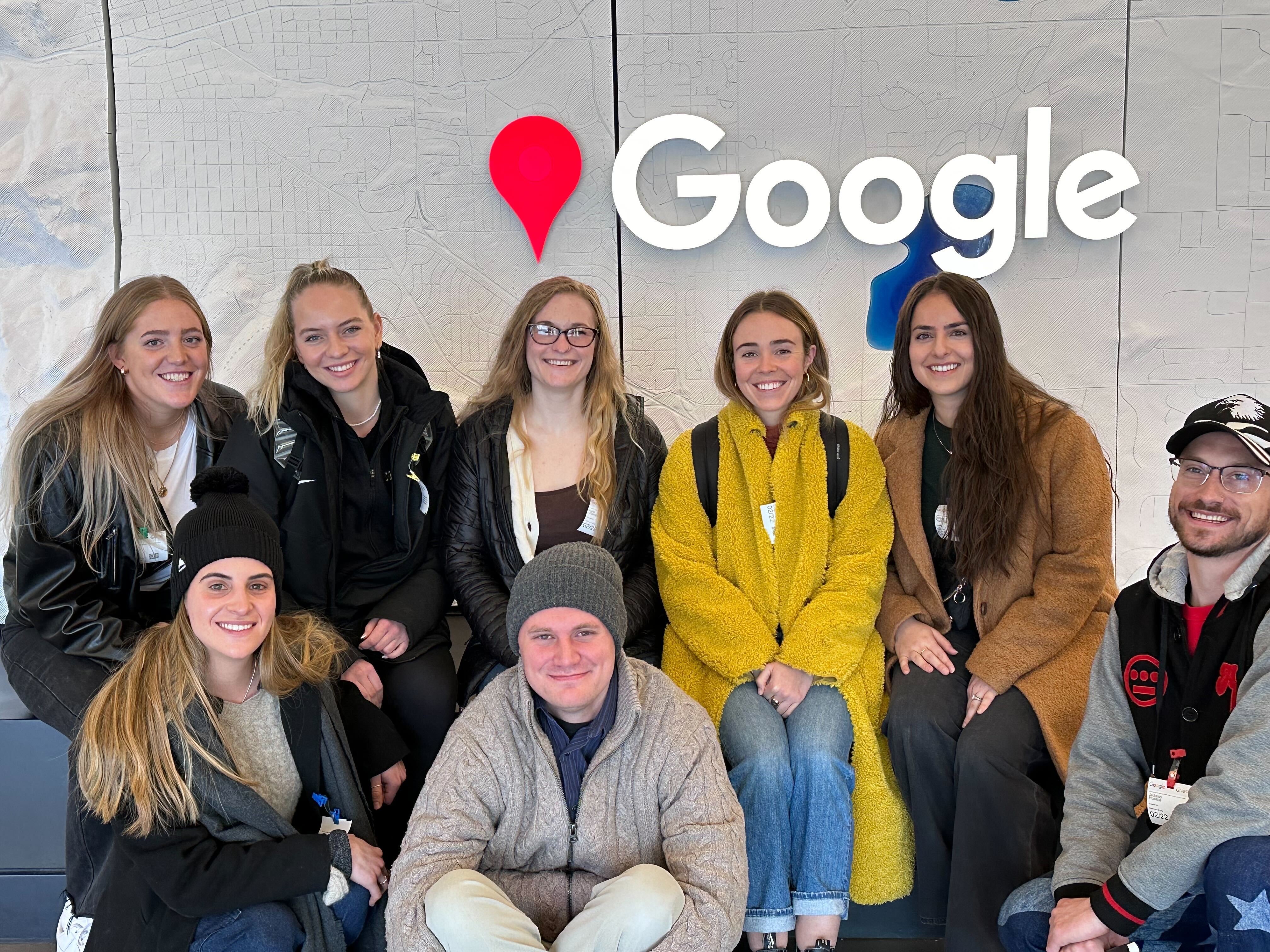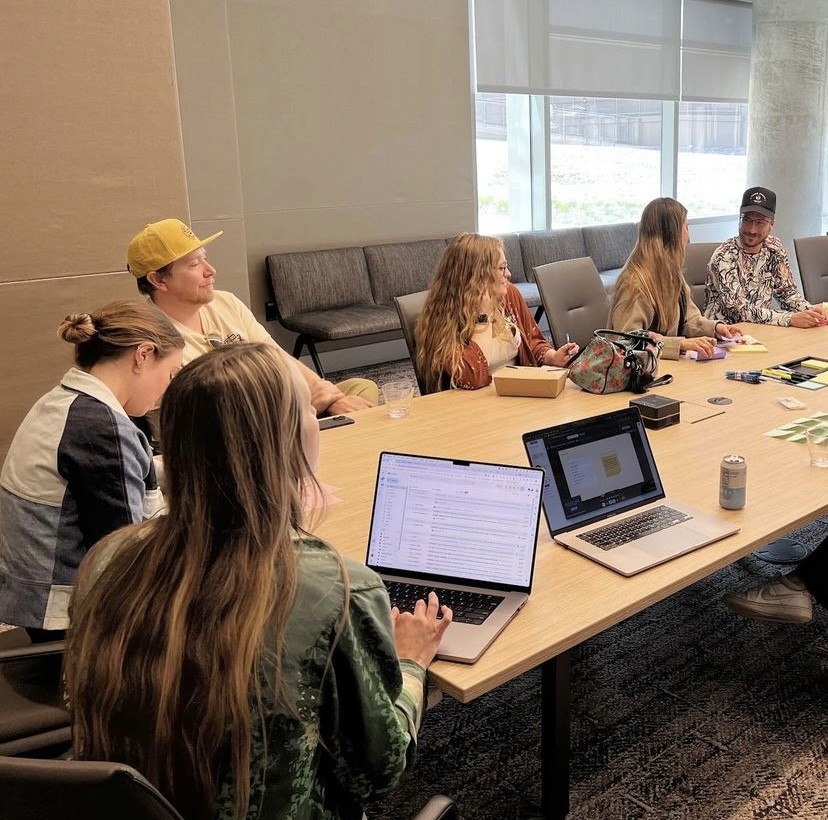Oddles:
A personalized method for transforming everyday moments into impactful developmental opportunities for children, from concept to execution to create a more meaningful and effective approach to child development.
Type
Group Project
Role
UX Design
Tools
Early childhood is a critical phase of development, yet many parents lack the tools and confidence to nurture their child's optimal growth during this time. They struggle to integrate best practices into their daily routines amidst a sea of conflicting information, and this can be overwhelming.
In Colorado, there are 22.4 million children under the age of 5. Early childhood education plays a crucial role in providing high-quality early education and a stimulating home environment, which helps to improve cognitive and social skills for future success. Supportive parenting is also associated with long-term improvements in mental and physical well-being.
THE PROCESS
Discovering
We began the process by prioritizing the different HMW statements in the table to focus on solving the impactful and low-effort problem space, which led us to "HMW help low-income students with their post-high school opportunities."
Problem Discovery
While conducting interviews with experts, parents, and students, we uncovered a common pattern. This led us to the realization that the root of the issue lies with parents during early childhood.

The foundation for a bright future beging at birth
Overwhelmed parents juggling childcare, work-life balance, and financial burdens need support to ensure the best future for their children by promoting healthy growth and optimal development.

To much screen time is harming your children
Children who have 1-4 hours of screen time per day at age 1 are up to 3 times more likely to experience developmental delays in communication and problem-solving skills, according to the Journal of the American Medical Association.

Parents don’t know how to parent without a screen.
Screen time among children has skyrocketed in recent years, with 87% of young children exceeding screen time recommendations from the American Pediatric Academy.
Children of less educated parents and first-time mothers were more than twice as likely to have exessive screen time exposure.
Exploring
Defining the user needs statement
Brainstorming
We brainstormed diverse ideas and used the "how can we make this problem worse" framework to focus on the main issues. Then, we clustered and voted to narrow them down.
We defined the concept as an app to guide parents through activities to stimulate cognitive, emotional, and social development in their young children.
Understanding the Concept
We decided to make storyboards to map out the user's experience with the concept and test it with users.
We tested the concept with three parents juggling early childhood and received
valuable feedback:
1. Make it as effortless as possible.
2. Take advantage of geolocation as much as possible.
3. Make it engaging from the start.
Low-fidelity Sketches
Final MVP
Personalize your child's profile during onboarding.
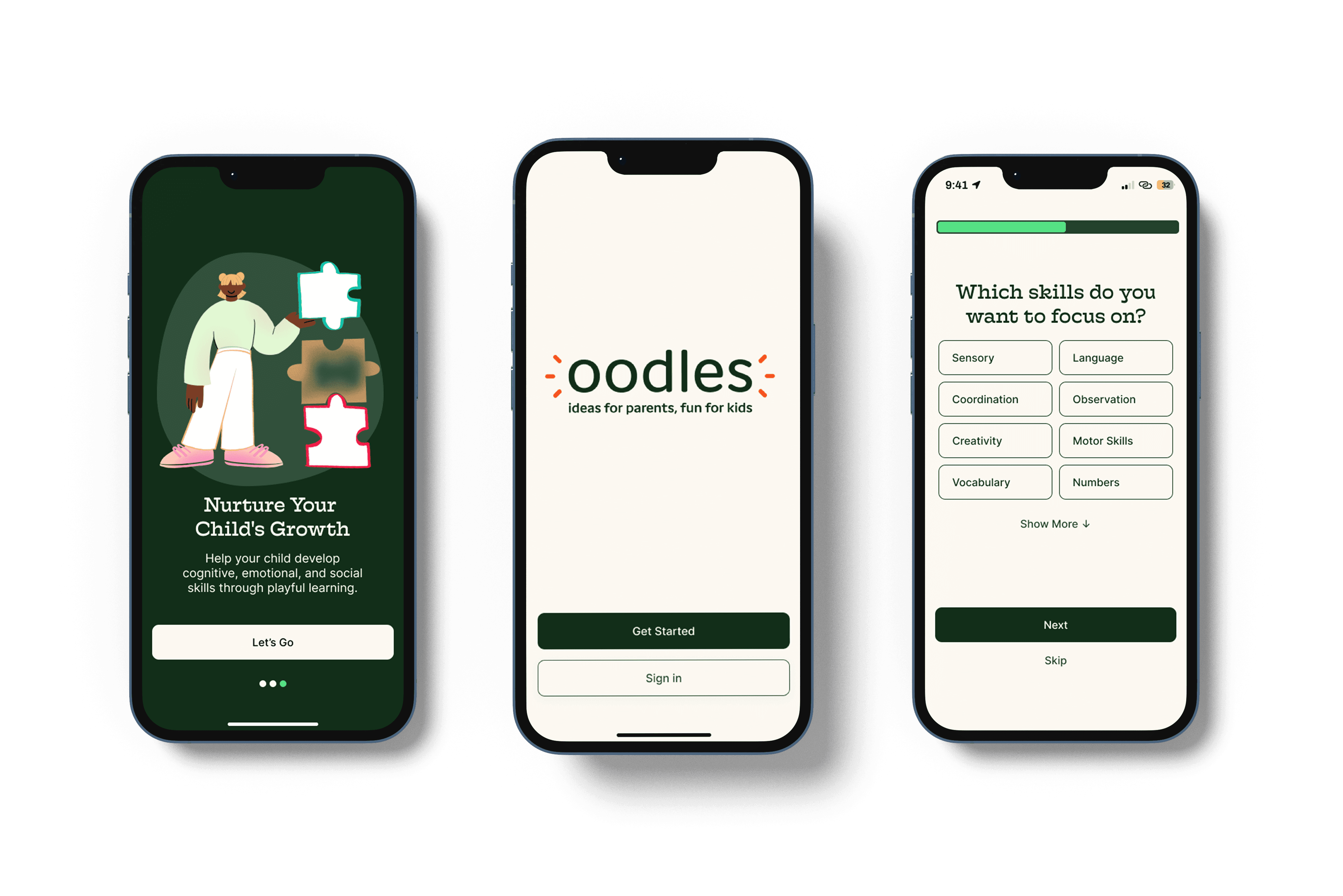
Receive location-based recommendations without having to open your phone.
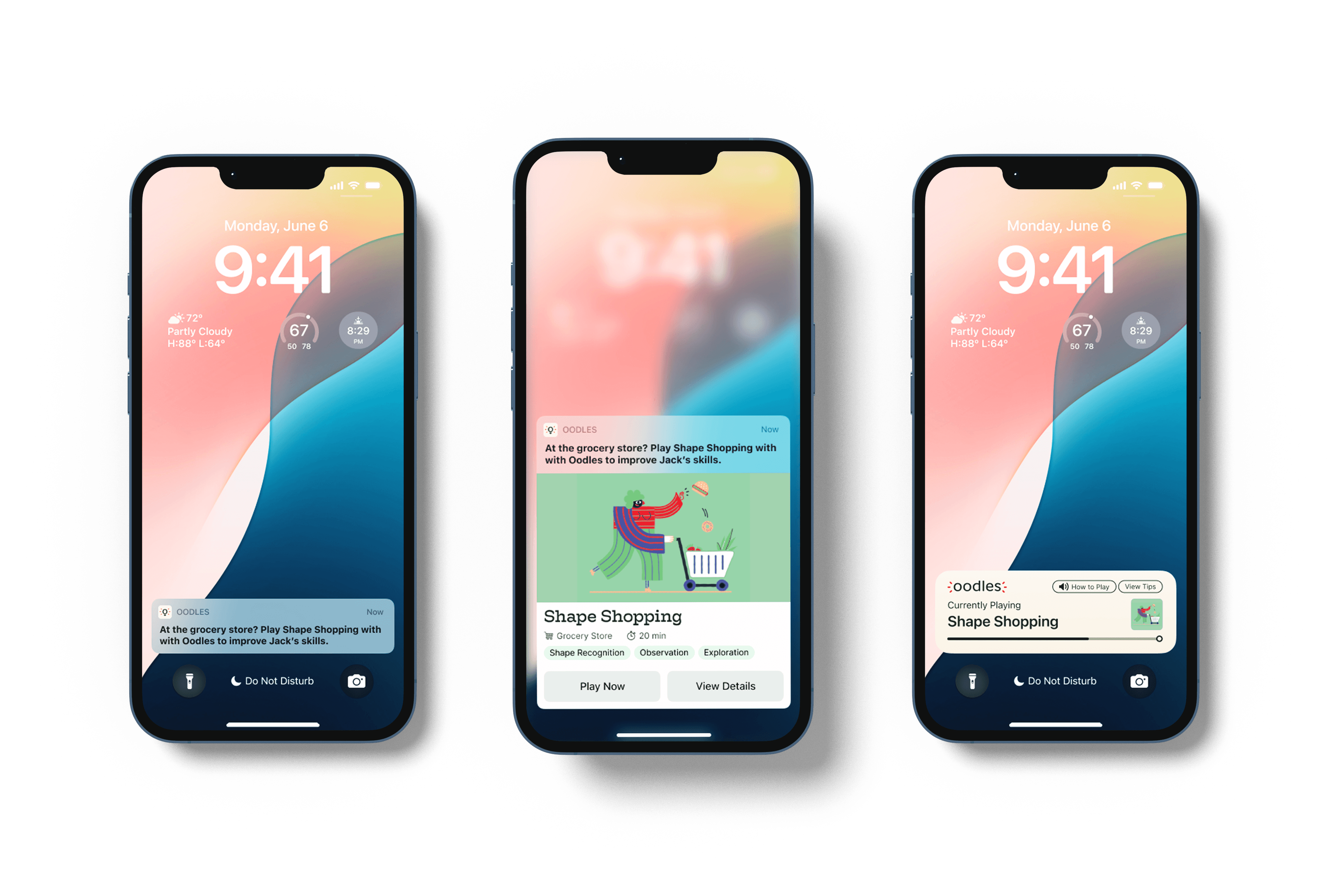
Discover daily activities tailored to your preferences.
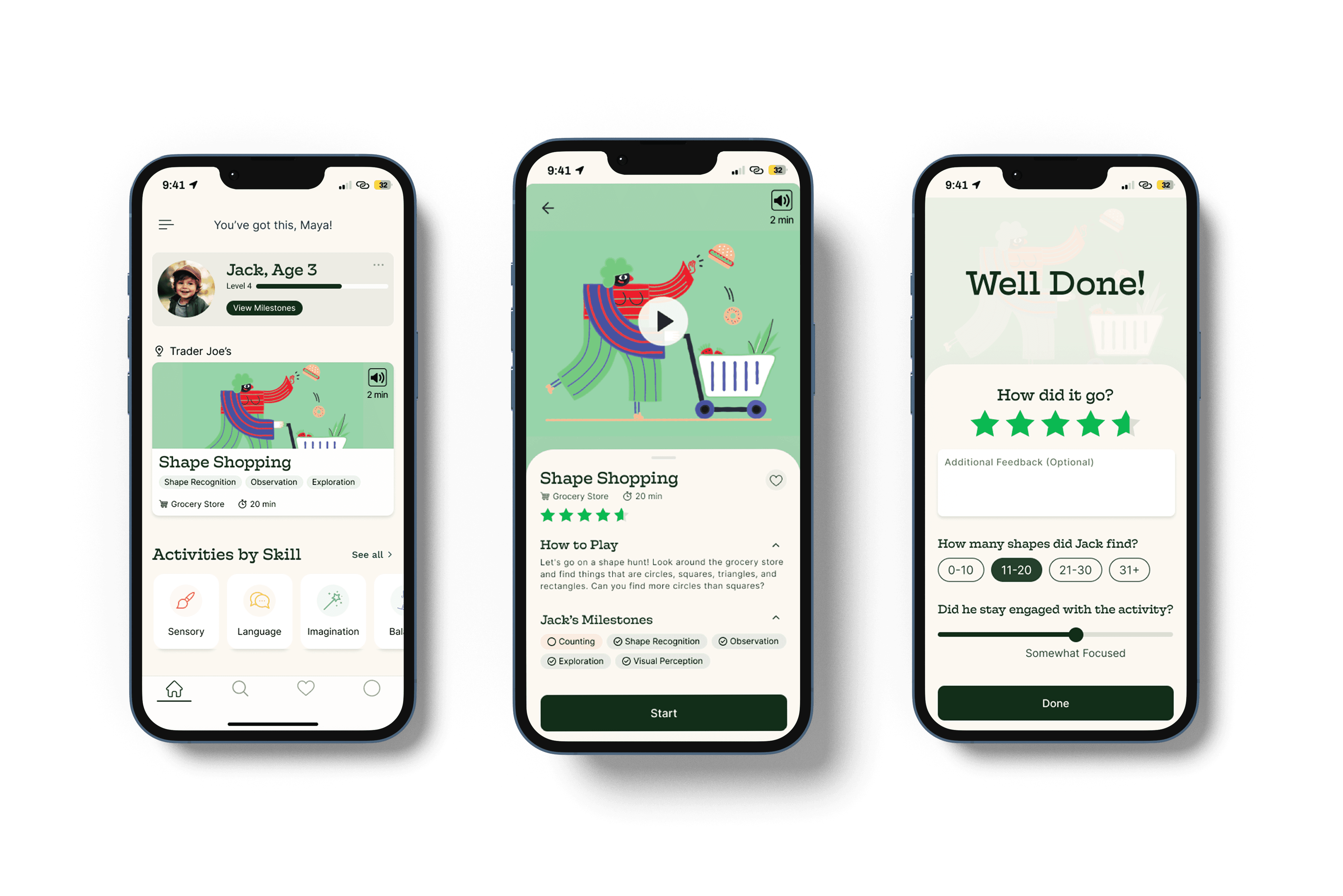
Big Takeaway
Working at Google and being close with Google mentors was a great privilege and an intense learning experience. What did I learn?
Don't confine yourself to the problem space defined before finding and understanding the root of the problem.
Stay curious, seek out real users for tangible insights,
Keep pushing forward even when it feels like you aren't making much progress.
